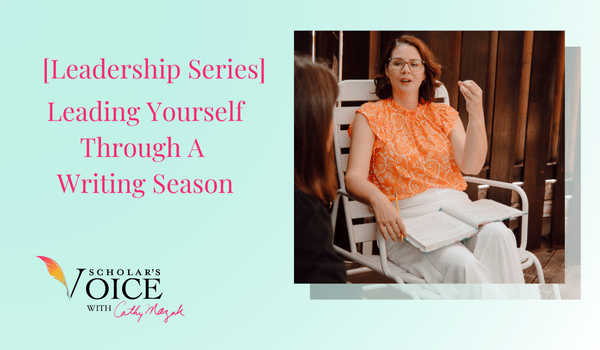A Career in Maternal Health and a Mother During Grad School: An Interview with Maira Quintanilha

On this episode of The Academic Womxn Amplified I’m speaking with Dr. Maira Quintanilha. She shares about growing up in Brazil in a culture where higher education was a given, and the struggle to balance family expectations and her own desires in choosing a field of study. After studying in Canada for a time, she knew she wanted to return; she credits other women academics with helping her find a way back to Canada for her graduate and PhD studies, and giving her a passion for mentorship.
MORE DETAILS
She talks about her decision to have children during her graduate research, how securing external grant funding made this possible, and how conducting qualitative research on the postpartum experiences of immigrants while pregnant affected her. We talk a little bit about race issues and the inequity inherent in our healthcare systems. Maira’s academic journey has taken her from Brazil to Canada, through having children at an unconventional point in her career, receiving her PhD and now to her passion of sharing knowledge and insight with other academics through qualitative research methods training.
Key points discussed:
- Growing up in Brazil with a love for learning and a family that valued education [3:30]
- Expectations of family, dealing with crisis, and coming to a field of study [6:30]
- Studying in a new country and feeling freedom as a young woman [10:30]
- Reaching out to contacts and finding support from other academic women to return to Canada for graduate study [12:30]
- The power of community and mentorship in helping each other achieve dreams and know which steps to take next [15:00]
- Starting a job after graduation, finding it wasn’t the right fit, and returning to academia for graduate studies [16:45]
- Dealing with residency status and joining a study led by an admired researcher [18:00]
- Messiness of community-based study, application for grant awards, and dealing with other academics who don’t know what they don’t know [21:00]
- Having babies during the PhD process, the financial privilege of personal grant money, and navigating the opinions and microaggressions of colleagues [24:00]
- Learning from study participants, studying birth complications while pregnant, seeing participants struggles through the lens of her own experience [35:00]
- Qualitative research as investigating the human experience, with all its joy and sadness [38:30]
- Public health and racism [43:00]
- Seeing new angles on her research as a result of current events [47:00]
- Launching a new course to help people be more reflective in their qualitative research [49:00]
- Course aims: discouraging (perceived) neutrality in students, helping them become more attuned to their own experiences and what it means for research, being more compassionate with subjects and with themselves. [51:00]
- The vital role of community in supporting qualitative researchers [56:00]
Key Quotes:
- “All paths are legitimate paths.” -Cathy Mazak
- “I always did my homework when I came looking for answers.” -Maira Quintanilha
- “We can learn so much from each other and I think we can uplift each other more than we sometimes recognize.” -Maira Quintanilha
- “You often feel as if you’re doing what no one else is doing by having kids during your graduate program…” -Maira Quintanilha
- “Having my babies really changed how I look at the data.” -Maira Quintanilha
- “That connection between public health and racism is really deep and old and we’re seeing it so clearly right now.” -Cathy Mazak
- “We cannot go back to ‘normal’.” -Maira Quintanilha
- “It’s never too late. It’s later than yesterday, but sooner than tomorrow, right?” -Maira Quintanilha
- “It’s easier to catch a breath when you have people alongside you to support you.” -Maira Quintanilha
More information and resources from Dr. Maira Quintanilha:
Facebook Group: Quali Q for Qualitative Minds
7 Reflections for Better Responses
Quali Q Guide to Qualitative Content Analysis
Connect with me:
RELATED PODCASTS
Stay current in Academic Publishing
Subscribe to our newsletter:
In the Pipeline
writing tips, publishing trends, reading recomendations, free workshops





